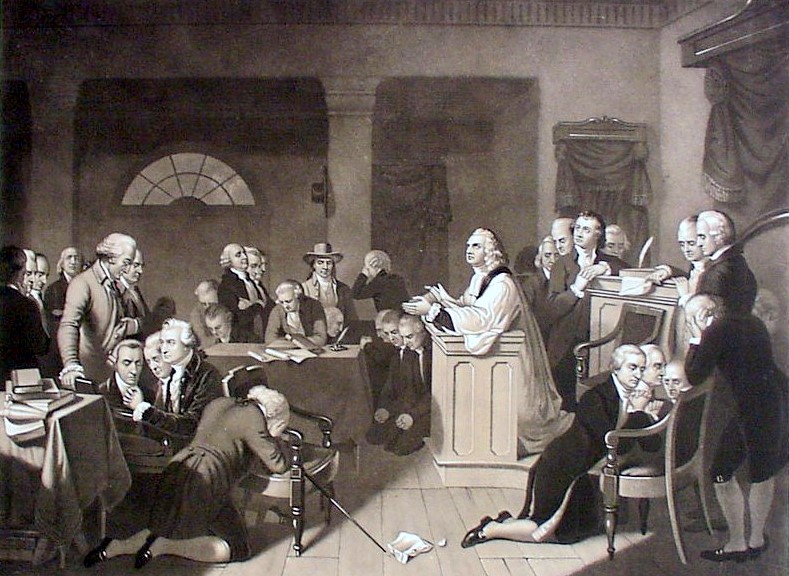 Bill Would Require Reading of Congressional Prayers in Alabama Schools read the headline a few days ago in The Anniston Star. As the story opened:
Bill Would Require Reading of Congressional Prayers in Alabama Schools read the headline a few days ago in The Anniston Star. As the story opened:
MONTGOMERY — Teachers in Alabama classrooms would be required to read a Congressional prayer every day under a bill filed in the state Legislature.
“If Congress can open with a prayer, and the state of Alabama Legislature can, I don’t see why schools can’t,” said Rep. Steve Hurst, R-Munford, the bill’s sponsor.
Hurst’s bill would require schools to set aside the first portion of the first class period every day “for study of the formal procedures followed by U.S. Congress,” which must include “a reading verbatim of one of the opening prayers” given at the opening of the U.S. Senate or House of Representatives.
Hurst said the bill would help students learn more about history and civics….
While it’s not clear how far this bill will get, it does raise some interesting issues if we consider it seriously — everything from schools taking full advantage of a legally mandated opportunity to look in detail at the rituals used to create a sense of somber deliberation and authority in federal government to the changes in what counts as legitimate and illegitimate in this now diverse, pluralistic society, such as would be afforded should a teacher opt to select, say, the July 12, 2007, prayer offered by Rajan Zed in the United States Senate, which in full read as follows (source):
We meditate on the transcendental Glory of the Deity Supreme, who is inside the heart of the Earth, inside the life of the sky, and inside the soul of the Heaven. May He stimulate and illuminate our minds.
Lead us from the unreal to the real, from darkness to light, and from death to immortality. May we be protected together. May we be nourished together. May we work together with great vigor. May our study be enlightening. May no obstacle arise between us.
May the Senators strive constantly to serve the welfare of the world, performing their duties with the welfare of others always in mind, because by devotion to selfless work one attains the supreme goal of life. May they work carefully and wisely, guided by compassion and without thought for themselves.
United your resolve, united your hearts, may your spirits be as one, that you may long dwell in unity and concord.
Peace, peace, peace be unto all.
Lord, we ask You to comfort the family of former First Lady, Lady Bird Johnson.
Amen.
As an aside, it’s unfortunate that the (what shall we call them?) protests or, perhaps better put, counter-prayers did not make it into the Congressional Record as well (listed as they are only as “Disturbance in the Visitors’ Galleries”), for then we might legitimately debate whether or not they too would have to be recited, verbatim, as part of the proposed law.
But I, for one, find in the proposed bill, if it becomes a law, a real opportunity for teachers and students to do far more than merely recite but instead, to really engage history and civics with their students by diving into discussions of the complex sorts of issues that I’d hope every citizen in a modern liberal democracy could discuss and debate vigorously with each other, regardless where they finally fall down on the issue — such as considering the distance traveled from the first prayer offered in Congress, back in 1774 (pictured above) to Rajan Zed’s own, some two hundred and thirty three years later.
Interested in Zed’s thoughts on his experience offering a prayer in Congress?
Or perhaps interested in another, more recent, example of Congressional
Prayer that falls outside the traditions usually represented? Or another?
See what one of our grads thinks about this issue…
https://religion.ua.edu/blog/2014/02/living-on-a-deconstructed-prayer/